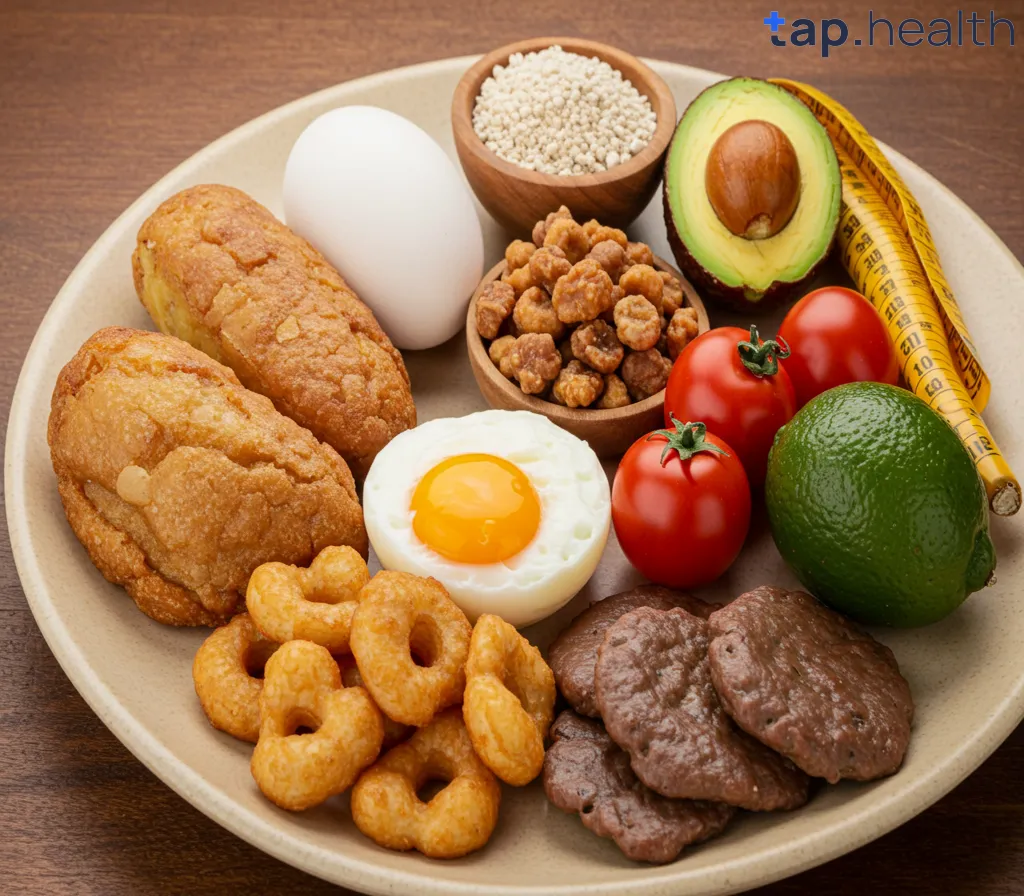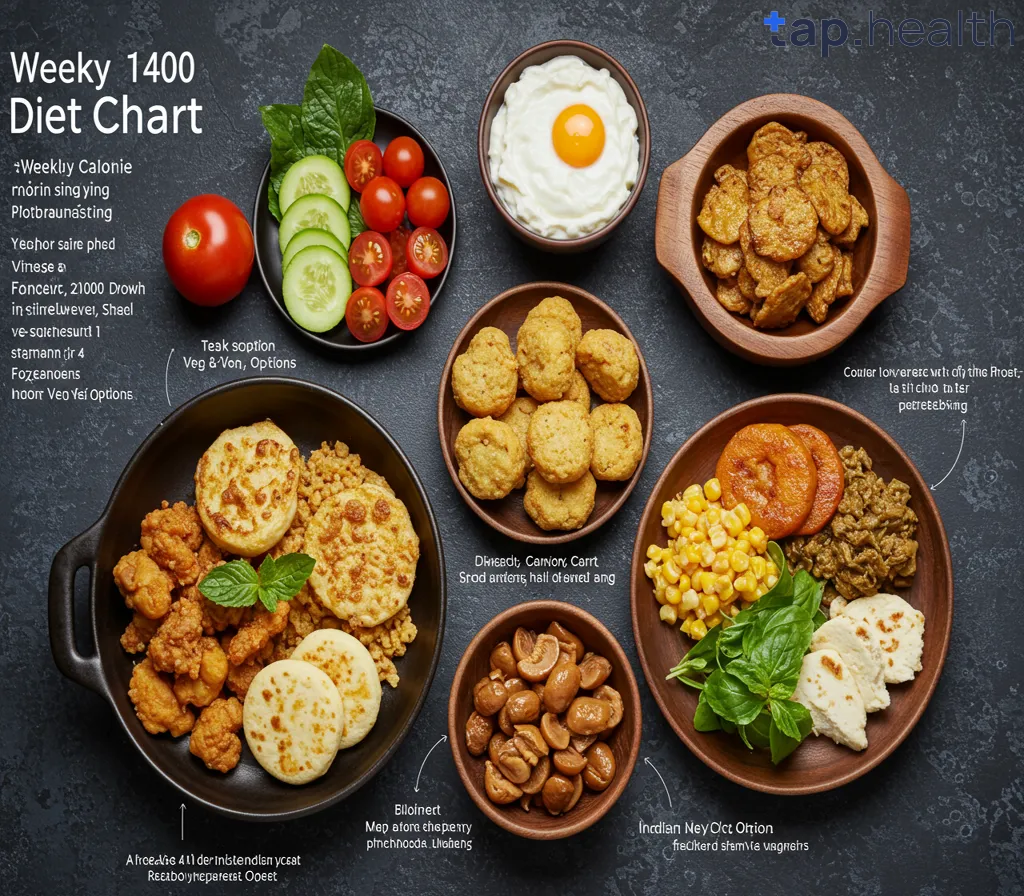Breakfast is often considered the most important meal of the day, especially for people living with diabetes. A balanced, nutritious breakfast can set the tone for blood sugar control, energy levels, and overall well-being throughout the day. However, not all breakfast foods are created equal for someone with diabetes. The right choices can help stabilize blood glucose levels, while the wrong ones can cause spikes and crashes in blood sugar.
If you’re diabetic, whether Type 1 or Type 2, it’s essential to start your day with a meal that supports your blood sugar management goals. In this blog post, we’ll discuss what diabetics can have for breakfast, focusing on foods that are low in refined sugar, high in fiber, and rich in nutrients that promote stable blood sugar levels.
Why Breakfast is Crucial for People with Diabetes
1. Blood Sugar Regulation
For people with diabetes, maintaining stable blood sugar levels is a daily priority. After an overnight fast, your body is in need of replenishment, and eating a balanced breakfast helps prevent blood sugar spikes and crashes. A meal high in fiber, protein, and healthy fats can slow down the absorption of sugar into the bloodstream, keeping glucose levels stable.
2. Energy Boost
A well-rounded breakfast provides your body with the necessary energy to start the day. If you skip breakfast or choose a sugar-laden meal, you may feel sluggish, tired, or irritable as your blood sugar levels fluctuate. A nutritious breakfast helps ensure you have the energy to tackle daily tasks.
3. Helps Control Weight
For people with Type 2 diabetes, managing body weight is an essential part of controlling the condition. A balanced breakfast can reduce hunger later in the day, helping prevent overeating and unnecessary snacking. The right breakfast choices can promote satiety (feeling full), making it easier to control calorie intake.
What Should a Diabetic Eat for Breakfast?
1. Focus on Low-Glycemic Foods
The glycemic index (GI) is a scale that measures how quickly a food raises blood sugar levels. Foods with a high GI, such as sugary cereals or pastries, cause quick spikes in blood sugar. For diabetics, it’s best to focus on foods with a low to medium GI that are digested more slowly and cause a gradual rise in blood sugar.
Some low-GI foods include:
- Oats (preferably steel-cut or old-fashioned)
- Whole grain bread or wraps
- Sweet potatoes
- Berries (such as strawberries, blueberries, and raspberries)
2. High-Fiber Foods
Fiber is crucial for blood sugar management because it slows down the absorption of sugar. It also aids digestion and helps keep you feeling full longer. Foods high in soluble fiber, in particular, are excellent for stabilizing blood sugar levels. Include these fiber-rich foods in your breakfast:
- Whole grains (like oats, quinoa, and whole-wheat bread)
- Chia seeds
- Flaxseeds
- Vegetables (like spinach, kale, and bell peppers)
- Fruits (especially apples, pears, and berries)
3. Incorporate Protein
Protein helps slow down the digestion process, preventing a rapid rise in blood sugar levels. It also promotes satiety and supports muscle health. Protein-rich breakfast options for diabetics include:
- Eggs (boiled, scrambled, or poached)
- Greek yogurt (unsweetened)
- Tofu
- Nuts and seeds (such as almonds, walnuts, and chia seeds)
- Lean meats (like turkey or chicken)
4. Healthy Fats
Healthy fats, especially those from plant-based sources, can help improve insulin sensitivity and maintain stable blood sugar levels. They also help you feel full and satisfied. Some healthy fat options for breakfast include:
- Avocados
- Olive oil (for cooking or drizzling)
- Nuts and seeds (as mentioned earlier)
- Nut butters (preferably natural, unsweetened)
Healthy Breakfast Ideas for Diabetics
Here are some diabetic-friendly breakfast ideas that are balanced, low in refined sugar, and great for blood sugar management:
1. Vegetable Omelette with Whole-Grain Toast
A veggie-packed omelette made with eggs, spinach, tomatoes, and bell peppers provides protein and fiber. Pair it with a slice of whole-grain toast for a complete, well-rounded breakfast. The fiber from the toast helps slow down the absorption of sugar, and the protein from the eggs keeps you feeling full longer.
2. Greek Yogurt with Berries and Chia Seeds
Greek yogurt is high in protein and low in carbohydrates, making it a great choice for diabetics. Add a handful of berries (such as blueberries or strawberries) and a sprinkle of chia seeds for an extra boost of fiber. This breakfast will help keep your blood sugar stable while providing plenty of antioxidants and healthy fats.
3. Steel-Cut Oats with Nuts and Flaxseeds
Steel-cut oats are a great choice for a low-GI breakfast. Top your oats with a handful of nuts (such as almonds or walnuts) and a tablespoon of flaxseeds for added fiber and healthy fats. You can sweeten it naturally with a small serving of fresh fruit, like apple slices or berries.
4. Avocado Toast with Eggs
Spread mashed avocado on a slice of whole-grain toast and top it with a poached or scrambled egg. Avocado provides healthy fats, while the egg adds protein, making this breakfast a satisfying, blood sugar-friendly option.
5. Smoothie with Spinach, Berries, and Protein Powder
A smoothie is a great way to pack in vegetables, fruits, and protein in one meal. Blend a handful of spinach (or any leafy green), a serving of berries, a tablespoon of flaxseeds, and unsweetened almond milk. Add a scoop of plant-based protein powder or Greek yogurt for extra protein. This smoothie will help regulate your blood sugar while providing important vitamins and minerals.
6. Chia Pudding with Almonds and Berries
Chia seeds are rich in fiber, protein, and omega-3 fatty acids. You can prepare a simple chia pudding by mixing chia seeds, unsweetened almond milk, and a little stevia or cinnamon for sweetness. Let it sit overnight, and top it with berries and sliced almonds for a filling and nutritious breakfast.
What Should Diabetics Avoid for Breakfast?
Certain foods can spike blood sugar levels quickly and should be avoided or minimized in a diabetic breakfast. These include:
- Sugary cereals: High in refined sugar and low in fiber, sugary cereals can cause rapid blood sugar spikes.
- Pastries and doughnuts: These are high in unhealthy fats and sugar, leading to quick blood sugar increases.
- White bread or white rice: These are highly processed and have a high glycemic index, causing a fast spike in glucose.
- Fruit juices: Even 100% fruit juices contain a lot of sugar and can quickly raise blood sugar.
- Sugary smoothies: Many store-bought smoothies contain added sugar or fruit juices, which can cause blood sugar levels to rise.
Real-Life Scenario: How Priya Manages Her Diabetes with Breakfast Choices
Priya, a 45-year-old woman from Pune, was diagnosed with Type 2 diabetes a year ago. Initially, she struggled to control her blood sugar levels and felt fatigued after breakfast. After learning about the importance of breakfast choices, Priya switched to a healthier morning routine. She started having a vegetable omelette with whole-grain toast and a cup of green tea. Over time, she noticed more stable blood sugar levels, better energy throughout the day, and reduced cravings for unhealthy snacks.
Priya’s experience shows how small, positive changes in breakfast can make a big difference in managing diabetes effectively.
Expert Contributions: Insights from Dr. Sanjay Gupta, Diabetologist
Dr. Sanjay Gupta, a leading diabetologist in Delhi, emphasizes the role of a healthy breakfast in diabetes management:
“A good breakfast is the foundation of blood sugar control for diabetics. I always recommend my patients focus on protein-rich, high-fiber foods that have a low glycemic index. Avoid processed sugars and refined carbohydrates that can cause rapid spikes. It’s important to create a breakfast routine that works for your individual needs, keeping in mind factors like your medications, activity level, and overall health.”
Conclusion: Building a Balanced Breakfast for Diabetics
Breakfast is a crucial part of managing diabetes. By focusing on low-GI foods, fiber, protein, and healthy fats, diabetics can create a breakfast routine that supports stable blood sugar levels, boosts energy, and promotes long-term health. Avoiding sugary, processed foods and focusing on whole, natural ingredients is key to maintaining balance throughout the day.
Remember to consult your healthcare provider before making any significant changes to your diet. What works for one person might not work for another, so it’s essential to personalize your breakfast choices to suit your unique needs.
FAQ: What Can a Diabetic Have for Breakfast?
1. Can diabetics eat oatmeal for breakfast?
Yes, steel-cut oats or old-fashioned oats are a great option for diabetics. They are low on the glycemic index and provide fiber, which helps control blood sugar levels.
2. Is it okay to have eggs for breakfast if you’re diabetic?
Yes, eggs are an excellent source of protein and healthy fats. Diabetics can enjoy them as part of a balanced breakfast to support blood sugar management.
3. Can I drink coffee if I have diabetes?
Coffee is okay in moderation, but avoid adding sugar or high-fat creamers. Consider using unsweetened almond milk or a splash of milk for flavor.
4. Are smoothies good for diabetics?
Yes, smoothies can be a good choice if made with low-sugar ingredients like spinach, berries, and unsweetened almond milk. Just avoid adding sweeteners or sugary fruits.
5. Can diabetics eat fruit for breakfast?
Yes, fruits like berries, apples, and pears are excellent choices. They are low in glycemic index and high in fiber, making them great for controlling blood sugar.
By making mindful choices at breakfast, diabetics can manage their blood sugar levels effectively and support their overall health throughout the day.



